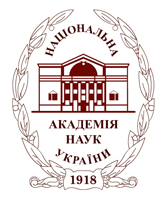 maan.nbuv.gov.ua
maan.nbuv.gov.ua
ISSN 2224-1825
Biblioteki nacionalʹnyh akademij nauk: problemy funkcionirovaniâ, tendencii razvitiâ

The collection of papers “Libraries of national Academies of Sciences: problems of functioning, tendencies of development” shares Principles of Transparency and Best Practice in Scholarly Publishing set by Committee on Publication Ethics – COPE. The full criteria is available on COPE web-site: www.publicationethics.org .
Principles of editor and publisher’ ethics
Evaluation of intellectual content of manuscript is given solely on its scientific contribution without regard to the race, gender, religion, citizenship, or political belief of the author(s).
Any unpublished data presented in a submitted manuscript could not be used for personal sake and couldn’t be passed to the third person without author’s written consent. Information from manuscripts submitted for publication treated as confidential.
If the editorial office has reason to consider manuscript as one contains plagiarism, such manuscript could not be considered for publication.
The editorial office doesn’t leave unanswered any claim relates to manuscripts reviewed or published materials and in a case of conflict takes an appropriate actions to restore violated rights.
Principles of reviewer’s ethics
Manuscript submitted for reviewing are treated as confidential and couldn’t be passed to the persons who isn’t empowered by editorial office.
Reviewers provides a constructive, comprehensive, evidenced, and appropriately substantial peer review report. Personal critic is considered as inappropriate.
Reviewer couldn’t use unpublished data contained in manuscript submitted to publication for personal sake.
Reviewer who consider him/herself as one who does not have qualification to evaluate certain manuscript or if the conflict of interests takes place has to inform the editorial office and ask to not participate in the article review process.
Principles of author of scientific publication ethics
Author (authors of manuscript) should provide reliable results of research. Deliberate presentation of wrong or distorted results is inappropriate.
The authors should ensure that they have written entirely original works, and if the authors have used the work and/or words of others, that this has been appropriately cited or quoted. Excessive citation or plagiarism in any form including latent citation, rephrasing or arrogation of other person right on research results, are considered as inappropriate and unethical.
The journal does not accept papers that have been either published or accepted for publication, or are under consideration for publication elsewhere.
All those who have made significant contributions to the research work may be listed as coauthors.
When an author discovers a significant error or inaccuracy in his/her own published work, it is the author's obligation to promptly notify the journal editor or publisher and cooperate with the editor to retract or correct the paper.



